A podcast series offering new solutions and fresh perspectives on the current issues with education in Australian schools.

We know a lot about what is wrong with education in schools. In this podcast series we offer new solutions and fresh perspectives to current issues in Australian education that are not being canvassed in other media.
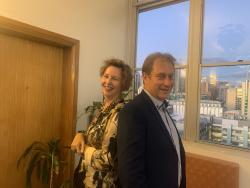
Associate Professors Jane Hunter and Don Carter
Each episode is hosted by Associate Professors Don Carter and Associate Professor Jane Hunter, members of the Life-wide Learning and Education Research Group in the Faculty of Design and Society at the University of Technology Sydney.
We have spent decades involved with education in schools as classroom teachers, head teachers, policy advisors, curriculum experts, course developers, partners in school-based research studies and the advancement of undergraduate and postgraduate teachers including inservice teacher professional learning.
We believe society and education in schools more broadly are at a crossroads and without different directions we are at risk of increasing inequity and fewer young people considering teaching as a career of choice.
Links to listen on Apple Podcasts are included below, or you can find us on other providers.
Series 3
In this third series, the interviews compliment the voices of both our first and second series guests. This time we focus on; teacher professionalism and trusting teacher judgement much more, the Australian Curriculum and what the new CEO has ‘top of mind’, AI in school education, what matters in Indigenous teacher education, showcasing innovative mathematics teacher education for schools and how some sections of the media are seeking to involve more academics in writing and preparing articles for Australia-wide online access.
We also have the Talking Teachers signature ‘30-second rant’ from every guest in each episode to provide new avenues to steer a path forward in schools.
Episode 13: Trusting teacher professionalism and teacher judgement
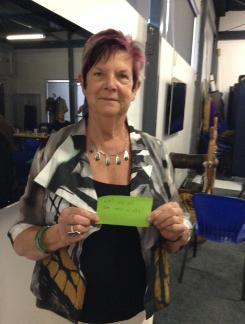
Professor Susan Groundwater- Smith AM is one of Australia's greatest academic practitioners who has remained close to practitioners in schools. She has over 50 years of teaching and academic experience in both mainstream and special education.
She's the author of many scholarly books and peer reviewed journal articles. Plus, she has published resources, commentary, and numerous reports.
Susan has a particular literary obsession, and in her writing about schools, teachers, and young people, she possesses conceptual and philosophical arguments, but always strongly grounded in the world of practice itself.
Susan is Honorary Professor at the Faculty of Education and Social Work at the University of Sydney. She's a life member of the Australian Association for Research in Education (AARE), the Practical Experience in Professional Education Incorporated, and she has received a lifetime achievement award from the University of Sydney.
Episode 14: New CEO of the Australian Curriculum, and Assessment Reporting Authority
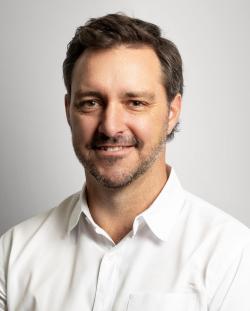
Stephen Gniel was appointed CEO of the Australian Curriculum Assessment and Reporting Authority (ACARA) in July 2024. Previously, he has held senior leadership roles in both Victoria and the Australian Capital Territory in early childhood, schools and post school portfolios with both policy and operational priorities.
In addition, Stephen was a member of the ACARA Board and served as the CEO of the Victorian Curriculum and Assessment Authority (VCAA), as well other senior positions within the Victorian and ACT Education Departments.
He was also the National President and Board Chair of the Australian Council for Educational Leaders between 2016 and 2022.
Episode 15: AI in schools
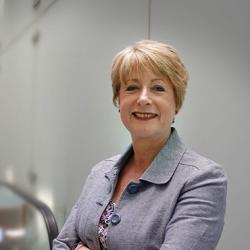
Professor Rose Luckin is an internationally respected academic and influential communicator across multiple stakeholders about the future of education and technology, particularly artificial intelligence.
With over 25 years of experience, Rose is a recognised expert on computer science, education and she has served as an advisor to policymakers, governments, and industry globally.
She is emerita at the University College London and the founder and CEO of Educate Ventures Research Ltd, a company that provides training and consultancy to the education sector to help them leverage AI ethically and effectively.
Episode 16: What matters in Indigenous teacher education in Australia
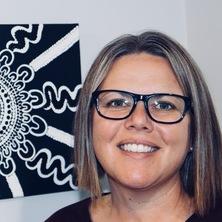
Marnee Shay is an Associate Professor and a Principal Research Fellow in the School of Education at the University of Queensland.
She is an Aboriginal woman whose maternal family is from the Ngen'giwumirri language group (Daly River, Northern Territory), she was born in Brisbane, with strong connections to Indigenous communities in southeast Queensland. Marnee is an experienced and qualified secondary teacher.
She is a lead editor of a critical text in the field of Indigenous education, “Indigenous education in Australia Learning and Teaching for Deadly Futures”, published by Routledge in 2021 The book won a national award for ‘The Tertiary/VET Teaching and Learning Resource category at the Education Publishing Awards Australia.
Episode 17: Mathematics education in schools
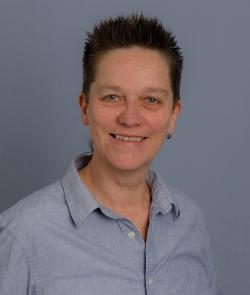
Dr Jill Brown is an Associate Professor in Mathematics Education at Deakin University. She is a former maths teachers and current maths educator and education researcher.
Jill is internationally recognised for her research where her interests include researching the teaching, learning, and assessing of real-world applications and mathematical modelling, mathematical thinking and reasoning, functions in technology-rich environments, affordances, zone theory, and anything that furthers our understanding of teaching and learning mathematics.
She was an elected member on the International Executive of the International Community of Teachers of Mathematical Modelling and Applications (ICTMA), 2013-2022.
Episode 18: The media taking note to improve practice
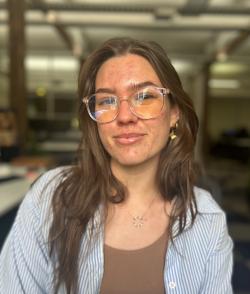
Erin Morley is the editor of Education Review and Campus Review both of which report on current issues in school-based education and higher education respectively.
A graduate of the University of Wollongong, Erin completed her internship at the Illawarra Mercury, where she investigated the lack of childcare vacancies by phoning 100 childcare centres within 70km of Wollongong.
Throughout 2023, Erin investigated and produced news for the health sector through Nursing Review and Aged Care Insite.
Episode 19: Talking Teachers goes live at FASStival 2024
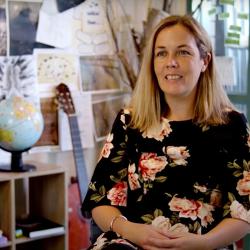
This episode involves a live audience; part of the annual celebration of activities, programs and creative work conducted in the Faculty of Arts and Social Sciences held in December 2024.
We interview Youth of the Streets (YOTS) leader Amy Gill who has many years’ experience working with young people outside mainstream schooling. YOTS is often a last chance to gain an education. Compassion, patience and optimism are Amy’s trademark. Anyone interested in how Amy and her staff have turned many lives around this episode makes for compelling listening.
William Verity producer of ‘Talking Teachers’ offers his podcast tips and tricks in this live show and there is even a 30 second rant on ‘hot education issues’ with the audience.
Series 2
In this second series, the interviews compliment the voices of the first. This time we focus on; teacher expertise, new teachers, attracting more Indigenous young people to the profession, a national program targeting exceptional teachers for disadvantaged schools and what now matters in public education.
We also have the Talking Teachers signature ‘30-second rant’ from every guest in each episode to provide new avenues to steer a path forward in schools.
Episode 7: Teacher Expertise
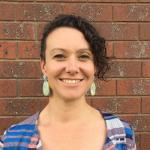
Associate Professor Jessica Gerard works at the Graduate School of Education at the University of Melbourne where she researches the changing formations, and lived experience, of social inequalities in relation to education, activism, work, and unemployment.
Jessica holds two ARC Discovery projects on an investigation of the shifting practices of public schooling, school governance and parental citizenship in disadvantaged contexts and in the second project is on community activism and education policy reforms across Australia in the 1970s and 1980s (with colleagues Proctor and Goodwin). She is the co-author of several books including Learning Whiteness, Class in Australia Migrations, Borders, and Education: International Sociological Inquiries. She is a member of the Social Transformations and Education Research hub. She tweets at @Jess_Gerrard.
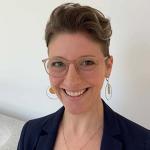
Dr. Jessica Holloway is Senior Research Fellow and Australian Research Council DECRA Fellow within the Institute for Learning Sciences and Teacher Education at Australian Catholic University, Brisbane Campus. Her first academic position was as an Assistant Professor of Educational Leadership at Kansas State University (USA). In 2016, she relocated to Melbourne to pursue a research-intensive postdoctoral fellowship within the Research for Educational Impact (REDI) Centre at Deakin University, where she conducted work on the relationship between accountability and educational leadership.
Her current project (funded 2019-2022), ‘The Role of Teacher Expertise, Authority and Professionalism in Education’ investigates the role of education in modern democratic societies, with a particular focus on teachers and teacher expertise. She tweets @JessLHolloway.
Episode 8: New Teacher Perspective
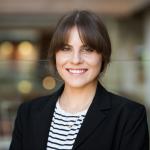
Gabrielle Zolezzi is a classroom teacher with experience working in both the public and private sectors of education. In her first six years of teaching, she has moved between full-time classroom teacher roles to positions on her school executive, shaping her holistic view and understanding of our education systems. Gabrielle has led, designed, and implemented whole-school programs focused on encouraging agile thinking and 21st century skill development and is the current recipient of a grant to research further into this area.
Listen now
Download Transcript
Episode 9: Exceptional Teachers for Disadvantaged Schools
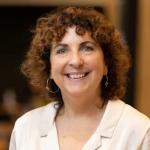
Jo Lampert is Professor of Teacher Education for Social Transformation in the School of Education, Culture and Society at Monash University. Known for her work with colleagues in designing and implementing large scale social justice teacher education programs such as the National Exceptional Teaching for Disadvantaged Schools program (NETDS) and Nexus, Jo now leads Monash's Transforming Teacher Education Research and Scholarship group, and co-directs its Education Workforce for the Future Impact Lab. Her recent ARCs include a Discovery project examining the impact of teaching shortages on teachers remaining in the classroom. Jo's co-authored book 'Disadvantage' will be published in 2024 in the Bloomsbury Keywords in Teacher Education series. She tweets @jolampert
Listen now
Download Transcript
Episode 10: A former Director General Looks Back, to Look Forward
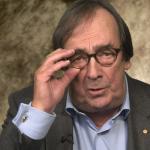
Dr Ken Boston began his professional career as a university lecturer, after being awarded his PhD in Earth Sciences. He then went into the education bureaucracy to go on to a distinguished career in Australian and international education. Dr Boston is a former Director-General of Education in South Australia and New South Wales, a former Director-General, Education and Training and Managing Director, TAFE NSW and former CEO of Britain’s Qualifications and Curriculum Authority. He was also a Gonski school funding reforms panellist.
Listen now
Download Transcript
Episode 11: Indigenous Teachers in Schools
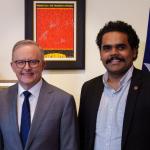
Randall Mumbulla is a final year teacher education student in the Bachelor of Education (Primary) Program at the University of Technology Sydney. Randall was also one of the winners of the recent 'If I was Prime Minister' essay competition, run by the Australian Indigenous Education Foundation (AIEF) with the award being presented to him by the Prime Minister, Anthony Albanese.
In this episode of Talking Teachers, we speak with Randall about this award and his experiences as an Indigenous teacher education student.
Listen now
Download Transcript
Episode 12: Ministerial Matters with Jason Clare
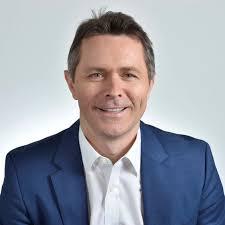
Jason Clare is the Federal Minister for Education - he has held the portfolio since 2022.
In this episode, Minister Clare responds to our questions on initial teacher education, his proudest achievements in the role so far, the challenges of funding – the cases of the Northern Territory and Western Australia, consulting the archives of research conducted by recognised teacher education associations and scholars – plus there is even a rant … well not really – maybe a blooper.
Don’t miss it.
Series 1
The conversations in the first 6 episodes revolve around key themes in education from different points of view including a union standpoint, the voice of a former NSW Minister of Education, the Australian media, a school funding commentator, a recently retired maths teacher and a respected teacher education researcher in Australia.
This first series with a ‘30-second rant’ from each guest is an attempt to provide new avenues to steer a path forward in schools. Relax on the sofa or go for a walk and tune into our new podcast series – we hope you enjoy it.
Episode 1: Power and Education
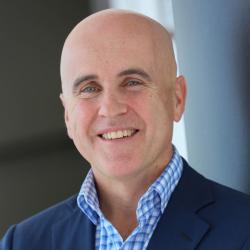
Professor Adrian Piccoli, former NSW Minister of Education, and previous director of the Gonski Institute at UNSW.
In our first episode of Talking Teachers, we speak with Adrian who was a member of the National Party and a former minister of education in NSW for 6 years. Adrian was able to work effectively with colleagues from the ‘other side’ of the political spectrum. Always a strong advocate for the voice of principals, parents and communities Adrian believes quality teaching is critical to education in schools as is being prepared to make difficult decisions when you are a minister of education: “Tension is constructive as is patience”.
In this episode, he also responds to our questions on who holds power in education, how does it relate to the current teacher shortage and what are the major ‘roadblocks’ to progressing different agendas forward in schools, the broader community and in teacher education in universities.
Download Transcript
Episode 2: Voice from the Classroom
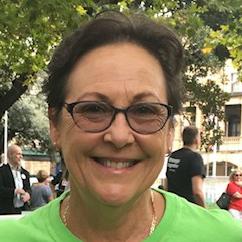
Julie Moon is a recently retired classroom teacher, union member, and advocate for public education.
In this second episode of Talking Teachers, we speak with Julie about her many decades of classroom experience and what she believes early career teachers require to be the best they can possibly be.
Julie responds to our questions on what it’s really like to be in a classroom today, what are the reasons for the current teacher shortage and how does the profession attract more young people who want to be teachers in K-12 schools.
Episode 3: Teacher Education and the Teacher Shortage
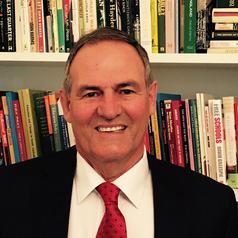
Emeritus Professor Alan Reid is one of Australia’s leading education research scholars. He is a former teacher and school principal, a recognised and award-winning contributor to education as well as being a sought-after advisor to State, Territory and Commonwealth governments on education issues.
In this third episode we talk to Alan about the damaging effects of neo-liberalism on education and why policy in Australian education is taking us backwards.
Alan responds to our questions with historical reminders of the autonomy and intellectual work that once defined teachers’ work, where he comments: “The standardizing educational agenda with its transference of private sector factors including choice and competition has had a disastrous effect on education”.
Episode 4: School Funding and the Teacher Shortage
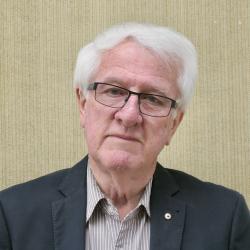
Chris Bonnor is an education commentator and former school principal. He is a longtime campaigner for public education and his recent publications both in books and online opinion pieces in national publications focus on equity and funding.
In this fourth episode we discuss why equitable funding for Australian schools is critical and how the teacher shortage is impacting the schools he works with. We hear from Chris about the advice he would like to offer governments and the solutions he believes would make a difference.
Chris is not hopeful about where education in Australia is at, he says: “It’s in the too hard basket. We have left so many things undone, for example, we haven’t solved the problem of equity – private providers undermine equity – it’s a system at war with itself. Deep structural reform is needed.”
Episode 5: Schools and the Australian Media
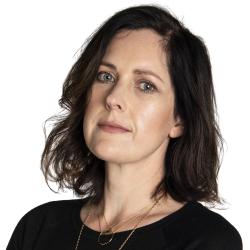
Jacqueline Maley is a senior writer and regular columnist for the Sydney Morning Herald and The Age newspapers.
In this fifth episode we ask Jacqueline about her own unique writing processes which are not necessarily 'scientific' but driven from the news cycle and topics that she might be discussing with friends, family and current events. There is no editor looking over her shoulder. She propels herself into a topic by reading about an issue that will then go to her editor for approval.
When writing about education, Jacqueline is careful to engage in research that provides a balanced and nuanced approach to an issue, especially given the many current 'hot topics' such as teacher workload and pay, student performance in standardised testing and school funding.
Episode 6: The State of Play in Schools and Union Solutions
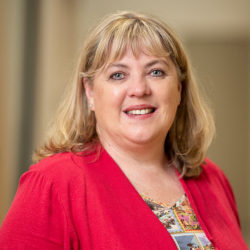
Correna Haythorpe became Federal President of the Australian Education Union in February 2015.
She has spent 17 years teaching in public primary schools. Most of her teaching has been in low-income areas of northern Adelaide and Port Pirie, in regional South Australia, including a stint in the UK and Japan.
As President of the AEU, she led the union through a long-running industrial dispute with the SA Government as well as organising the “I Give a Gonski” and “Stop TAFE Cuts” campaigns. She has extensive experience and understanding of social justice issues, with a particular interest in students and their families from disadvantaged areas.
In this episode Correna shares stories of her interactions with politicians, her beliefs and ideas for solutions to the issues of teachers’ pay and conditions and the future of teaching, and unions in Australia.
ABC Radio Sydney Interview
Don and Jane spoke with Sarah Macdonald on ABC Radio Sydney, discussing the podcast and their findings on the state of teaching in NSW.
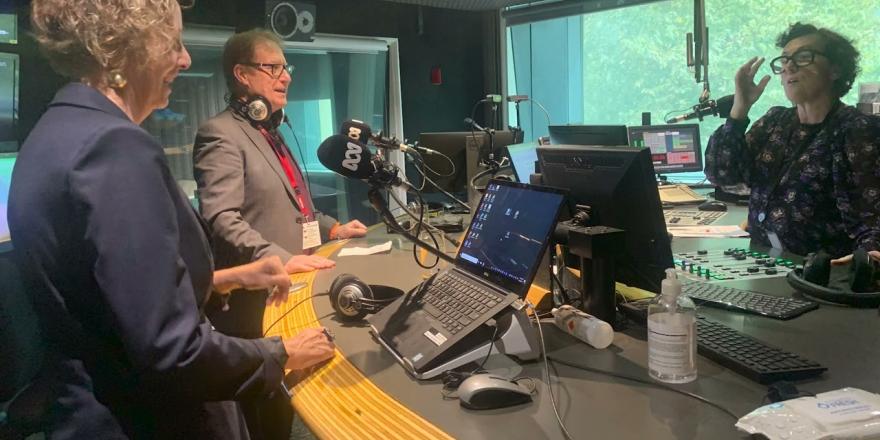
00;00;08;05 - 00;00;33;10
Speaker 1
Teachers, schools, education. It's always in the news. The latest being this morning. We've got the date of when the mobile phones will be out of the schools. Will that make teachers lives easier or is it another thing that they have to police in the schools? Whenever we mentioned teachers on this program, the text line in front of me moves like a pokie machine because it's something that affects so many of us.
00;00;33;10 - 00;00;59;03
Speaker 1
And we know that teachers are having a pretty tough time at the moment. They are leaving the profession. People are not going into it. It's in crisis mode. But there's also opportunity, says a new podcast that looks at just this. And joining me to talk about it is those who put the podcast together. Senior lecturer Don Carter and Associate Professor Jane Hunter from the University of Technology in Sydney.
00;00;59;03 - 00;01;03;04
Speaker 1
Between them both, they have what, eighty years of teaching experience.
00;01;03;27 - 00;01;06;14
Speaker 2
80, about that yes. Yes.
00;01;06;28 - 00;01;13;14
Speaker 1
So you've both worked as teachers and you still going into schools now all the time for your work. What are you looking at when you're doing that?
00;01;14;06 - 00;01;30;26
Speaker 2
Well, there's a number of things that we look at. We look at students literacy skills that they're writing skills, communication skills. We also want to see how they're relating to each other. There's a number of focuses that we look at when we go into schools.
00;01;31;16 - 00;01;59;16
Speaker 3
And my research most recently has been looking at building teacher capacity in STEM. But more particularly to really focus on engagement and motivation of young people in science and math. In particular, because that's an area where, you know, there's been a lot of research around the fact that productivity report suggests that those areas are not being well serviced in the upper years of school.
00;01;59;28 - 00;02;13;10
Speaker 3
And so we really need to make sure that young people and I would argue strongly right from kindergarten, very five year olds need need to be motivated and exposed to a lot more science, math and technology.
00;02;13;13 - 00;02;31;12
Speaker 1
Well, that's certainly been a big focus in what we hear about policy. But there's a real mismatch, isn't there, often between policy and what is being announced and the actual reality on the ground. And what did you want to explore in this podcast, Jane Hunter, about the current state of the situation for teachers?
00;02;31;24 - 00;03;12;08
Speaker 3
Well, we wanted to explore the main I guess the major focus here was really trying to understand where the big challenges are I mean, the media has a particular focus and our research and lack of interest in coming into teacher education was something that really struck us. So we wanted to have a look at really how is this playing out in the field, but also people who've been in education and commentating, writing about education for a long time, how how are they seeing these issues?
00;03;12;08 - 00;03;36;08
Speaker 3
And because often a lot of the good news stories don't make it into the press. There's alarmist politics around this a lot of the time. And let's face it, we've had a decade of what I would call a lack of interest in education. And a lot of the issues that needed to be addressed have been shining brightly for a very long time.
00;03;36;08 - 00;03;48;00
Speaker 3
And we haven't had we've had a series of education ministers, I would argue, both state and federally, who haven't really turned their attention to where it needs to be.
00;03;48;01 - 00;03;56;28
Speaker 1
You did talk to Adrian Piccoli, who was the Education Minister in New South Wales, some years ago when we'll see that Education Minister 20.
00;03;56;28 - 00;03;58;07
Speaker 2
11 to 27.
00;03;58;08 - 00;04;06;07
Speaker 1
Time, and he has activated in him a lifelong interest in this is with the Gonski group it at UNSW W.
00;04;06;15 - 00;04;46;01
Speaker 2
Yes he was Professor of Education at the Gonski Institute at NSW. He's since moved on but his current role still looks at education and staffing schools. Now Adrian, as you mentioned, Sara is one of our guests and he had a lot of interesting things to say because he could bring to the podcast a different perspective. Not all of us have had that perspective as Minister of Education or at least that high level of policymaking but always you can tell if you listen to the podcast, Adrian is genuine, remains genuine and all of the stakeholders that I spoke to during his term as minister said the same thing, that he wants the best for schools and
00;04;46;01 - 00;04;50;01
Speaker 2
for teachers. He was a genuine New South Wales Minister for Education.
00;04;50;07 - 00;04;58;14
Speaker 1
Yes, well, here is he him talking on on your podcast saying what advice he'd give to an Education Minister. So maybe this is one for PACCAR.
00;04;58;20 - 00;05;18;04
Speaker 2
My, my advice has always been speak to schools directly. Don't believe everything the department or stakeholders tell you because sometimes they're wrong and they come from their own perspective and I'll only speak from my own experience. The best thing I ever did when I was minister was when I used to go and visit schools that asked the department, get me a dozen principals from the neighboring schools.
00;05;18;11 - 00;05;35;27
Speaker 2
We might have a look at the school and say, Right, let's spend an hour in the library with a dozen principals, no one from the department, and just sit down and listen to what principals are saying. And it was absolutely invaluable because they would be very frank about what's working, what's not working, what they need, the vibe of of education.
00;05;35;27 - 00;05;45;10
Speaker 2
And I and I learned a lot at those kinds of things. And I've always said to ministers, you should do it. You should do that. Get that direct feedback and triangulate every bit of advice that that you get.
00;05;45;26 - 00;06;13;22
Speaker 1
That is Adrian Piccoli with senior lecturer Dr Don Carter and Associate Professor Jane Hunter from the University of Technology, Sydney. They've put together a podcast which has conversations around themes in education from different points of view. You get the union standpoint, you get the media's look. Insights from Jack O'Malley, a school funding commentator, a recently retired mass teacher and a respected teacher education researcher in Australia.
00;06;14;03 - 00;06;27;22
Speaker 1
Jane, do tell us some of the good news. I think that we don't hear from this because it does seem to me that teachers feel they get a hard time from the media. And I hope that I get it on this show because we worship them. But where are the good news stories and what can they teach us for the way forward?
00;06;27;25 - 00;06;56;25
Speaker 3
Yeah, look, that's a that's a great question, Sara. The good news stories are that when young people go into schools, once they finish their teacher education programs and we have lots of excellent graduates out of our programs, and we know that through exit surveys and so on, that when they are strongly supported in the school or with a mentor, I reduce teaching load and so on, they really are given the opportunity to flourish.
00;06;57;06 - 00;07;30;05
Speaker 3
And I continuously see in my trips into schools, sort of experienced teachers taking our new graduates under their wings. We also have a lot of career change teachers who have are expert in their subject, and they, too, are also mentored. But but not. Not all the time. So we also need to take the good programs that really focus on reduced load mentoring and building up their skills once in the field.
00;07;30;18 - 00;07;56;00
Speaker 3
We need to take those ideas on board and ensure that that's the experience of most of our new graduates. So. So I would strongly argue that that the idea of a new teacher, education, students in the field, lots and lots of young people being able to have the opportunity to really grow their teaching skills because it's a it's a lifelong process.
00;07;56;00 - 00;08;08;23
Speaker 3
You don't just graduate with a set of extraordinary skills. You need to practice, rehearse, get feedback and so on. But I'm sure Don would like to add to what he thinks in this space as well.
00;08;08;29 - 00;08;32;21
Speaker 2
Thanks, Jane. And I certainly agree with everything you've said. And I'd just like to point to some research I conducted with New South Wales Public Primary Schools. Now, this was just before COVID hit and I was looking at how schools were implementing the general capabilities in the in the curriculum. But what I found was that teachers take a holistic view of their students development.
00;08;33;01 - 00;08;50;09
Speaker 2
It's not just literacy and numeracy. Now that it's not say, yeah, it's the whole person it's their communication skills, their interpersonal skills, their intercultural understanding, et cetera. Unfailingly that came through with in every school I went to with every teacher interview I did.
00;08;50;12 - 00;08;55;08
Speaker 1
I think anyone who's had a parent teacher interview will have noticed that with the teacher. Any parents? Yes. Yes.
00;08;55;08 - 00;09;19;16
Speaker 2
It's true in teachers that some of the greatest humanitarians in our society then COVID hit. And the good news there was that teachers pivoted so quickly to work online or in hybrid situations, et cetera. Now, this was unprecedented in education worldwide, but our teaching force were able to do that as successfully as possible with the resources they had.
00;09;19;17 - 00;09;23;21
Speaker 2
And let's face it, the resources aren't spread equitably across the system.
00;09;24;14 - 00;09;30;17
Speaker 1
And that's a big issue, isn't it? And I think COVID has exacerbated things. Judy's called in a retired teacher, Judy.
00;09;31;12 - 00;10;06;19
Speaker 4
Hi there. Hi there. I endorse everything they've said, but I the problem, I think, is that teachers are teaching too many kids for too long in their working week. So if they reduced class sizes and they reduced face to face teaching time, then then teachers can get on with developing individual learning. Programs, individual assessment tasks and reporting. And it's just a different job.
00;10;06;19 - 00;10;10;21
Speaker 4
But now too when I entered the force in 1976.
00;10;10;24 - 00;10;30;03
Speaker 1
Yes. So class sizes and also it seems like the teacher workload that they they so many of the teachers say we're just stuck doing all this paperwork and stuff rather than actually being with the kids that we enjoy and loved so much and that comes through so strongly in this doesn't it? Jane, thank you for your call. Judy.
00;10;30;25 - 00;10;54;13
Speaker 3
Thanks, Judy. Judy raises a number of points and I might just come back to that in a moment, but certainly the workload is huge and teachers need to be able to focus on their teaching, their lesson preparation worksheet, production resources do so much, but it's not the, in essence, a really key way of engaging our young people in teaching and learning.
00;10;55;13 - 00;11;18;19
Speaker 3
I just wanted to point out in terms of what Judy was raising around time at school, that something that I've noticed in a research project that I'm conducting at the moment in a newbuild high school ride out west of this city is that the young people are saying to me that they don't want to come to school for a whole day.
00;11;18;27 - 00;11;19;12
Speaker 3
They got.
00;11;19;24 - 00;11;20;25
Speaker 1
That. Students are saying.
00;11;20;27 - 00;11;41;06
Speaker 3
Yes, that's what they're saying. And the focus groups that I've conducted and they're talking about the fact that they are able to do their learning in 90 minutes each day when they are at home learning from home. And they they question why they have to spend 6 hours at school and certainly in this school, and I know in many others.
00;11;41;12 - 00;12;13;19
Speaker 3
Well, you've also got the issue of many parents wanting to home school now, post-COVID, but also they they absolutely don't. Absenteeism on Fridays, for example, is critical. And I know the Department is looking, for example, at a different model of schooling, but in terms of reduced hours and so on. But I think that we really need to be, you know, a lot of the skills and the approaches across disciplines, for example, need to be much more engaging and motivating.
00;12;13;19 - 00;12;39;16
Speaker 3
So we've got young people working on real issues. The pedagogy around that is really focused on what I would call it, an interdisciplinary approach. So that we can really move them out of the silos to attack and be ready for post university post case study that really will take them into thinking about what problems we need to solve in society.
00;12;39;20 - 00;12;55;25
Speaker 1
So you're thinking really big on this. I want to play a little bit of one of your podcasts Sarah McDonald with you on ABC Radio Sydney. Dr John Carter, an Associate Professor, Jane Hunter with us from the University of Technology there, put together a podcast talk called Talking Teachers here's Julie Moon on it, who is a teacher.
00;12;56;10 - 00;13;17;29
Speaker 5
Once you're a teacher, always a teacher, and I think that's anyone who leaves the profession will always say, I'm a teacher, but or I'm a teacher. But now it is one of those things that is a calling, I believe, a passion. It's not just a job and that's why I become very distressed when I see the way that teachers.
00;13;17;29 - 00;13;18;27
Speaker 3
Are portrayed.
00;13;19;13 - 00;13;21;20
Speaker 5
In the press and by the government.
00;13;22;09 - 00;13;38;01
Speaker 1
Again, we hear that teachers are feeling under attack and the stress that they're facing. We talked about this last week. I could not I could not believe some of the texts that were coming in from teachers. They're feeling very put upon at the moment and very stressed. And this is going to have an impact on our kids as well.
00;13;38;01 - 00;13;52;24
Speaker 1
So for parents that are listening. Dr John Carter would like what what is the role of parents within this as well as I suppose, you know, members of a society in a state that really needs to do better by our teachers.
00;13;53;00 - 00;14;19;03
Speaker 2
That's a great question, Sarah. And often parents in the school community are part of the equation they get forgotten about. Now, for example, a week or so ago, the federal government released the teacher education expert panel report and community engagement got one small mention in this whole report, which really surprised me because education of children is a partnership.
00;14;19;03 - 00;14;44;29
Speaker 2
It's a partnership between the school the teacher and the parents and caregivers. So it's really important that parents work with the school, but also to do the small but important things and being an English teacher, while I still teach English here at UTS, but reading with their children, going to the library with their children, selecting books with their children, sitting down and reading with them, as I say, but also modeling.
00;14;44;29 - 00;14;45;23
Speaker 2
Reading as well.
00;14;46;15 - 00;14;46;27
Speaker 3
Well, people.
00;14;46;27 - 00;14;54;14
Speaker 1
Talk about the over overstretched curriculum to the teachers having to teach things that parents should do, such as teeth brushing and all sorts of weird things in.
00;14;54;14 - 00;15;26;18
Speaker 2
Primary school. That's right. Feeding kids breakfast, for example. It's true. While there are a set of parental responsibilities, not all those responsibilities are taken up in equal measure by all parents, and schools have had to step in and adopt you know, assume those responsibilities when in fact at the moment there's a huge curriculum change in New South Wales and teachers, apart from the paperwork, et cetera, are having to deal with this new set of curriculum, new syllabuses that are coming in over a period of time.
00;15;26;23 - 00;15;28;18
Speaker 2
They've got curriculum fatigue as well.
00;15;29;10 - 00;15;33;17
Speaker 1
Because of the change so we need changes, but we don't want to overwhelm them with changes.
00;15;33;18 - 00;15;57;22
Speaker 2
Well, that's right, and I think part of the reason that there are so many changes, I mean curriculum renewal and review is good, but there's a lack of trust in teachers on the ground from policymakers and politicians, and sometimes politicians go for the easy slogan in a quality teaching, quality teachers, evidence based. What do those things mean when you unpack them?
00;15;57;29 - 00;16;06;02
Speaker 2
They mean different things to different people. But education is replete with slogans and they tossed around. Yeah, the guy abandoned.
00;16;06;06 - 00;16;26;15
Speaker 1
It's 7 minutes to five. The other thing it's full of is constant testing of children and someone's texting and saying, My grandson goes to a selective school. And it's just all about the results. Results that results. And they've had tutoring to get there. I mean, what sort of impact is that having? And I think that the difference between schools, I think COVID has exacerbated even more.
00;16;26;15 - 00;16;32;18
Speaker 1
And so much of it is just focusing on marks and testing and I'm wondering what you think that does to the profession.
00;16;33;01 - 00;17;12;12
Speaker 3
Then focus on marks and testing has been coming for a very long time. And I think across all of the interviews that we did in this first series, that issue around the global education reform movement pieces scores now plan, those sorts of statements and conversations are dotted throughout the first series. But what I have seen is that this overreliance reliance on data collection and I think Adrian also picks up this point and says that, you know, a little bit of data collection was a good idea but all of a sudden it became this monster.
00;17;12;19 - 00;17;43;07
Speaker 3
And so that everything has to be quantified. And it's it's a bit of, you know, a bit of a case of how do you what kind of data do you really want that's going to not only give you some quantitative material, but how does it actually when when you feed in the information from teachers observations, peer observations and so on to really flesh out the full picture of a child, and that changes.
00;17;43;08 - 00;18;10;28
Speaker 3
And if if it's constantly this idea that we've got to meet these international test scores that Australia's, you know, a failing education system globally, these are the sorts of headlines that catch people's attention. And often there's not enough drilling down to really unpack what that means. And parents get caught in the headline and then they don't necessarily nor are they able have time to think about that.
00;18;10;28 - 00;18;25;25
Speaker 1
In that panic because you want your best buy your kid, but you're part of a system, you're part of a of a country that has a different education system. To others in terms of private and public and the difference between them just getting more and more pronounced, but more people going into the private system. So it's exacerbating it.
00;18;26;05 - 00;18;46;09
Speaker 1
And we're getting into a little bit of a sort of you know, it just gets into a cycle. So there's big conversations to be had people texting and saying things like education's in investment in our collective future. In France, it was like a profession like medicine or law that says it should be. It seems we've come further away from that over the years.
00;18;46;09 - 00;19;00;11
Speaker 1
But your podcast trying to have an impact on this. So if you want to download it, it is called Talking Teachers. It is put together by UTS senior lecturer Dr Don Carter and Associate Professor Jane Hunter. Thanks so much for coming in today.
00;19;00;27 - 00;19;01;15
Speaker 2
Thanks Sarah.
00;19;01;15 - 00;19;02;16
Speaker 3
Thanks very much Sarah.
00;19;02;16 - 00;19;05;28
Speaker 1
And as usual, the text line is going crazy from teachers.

